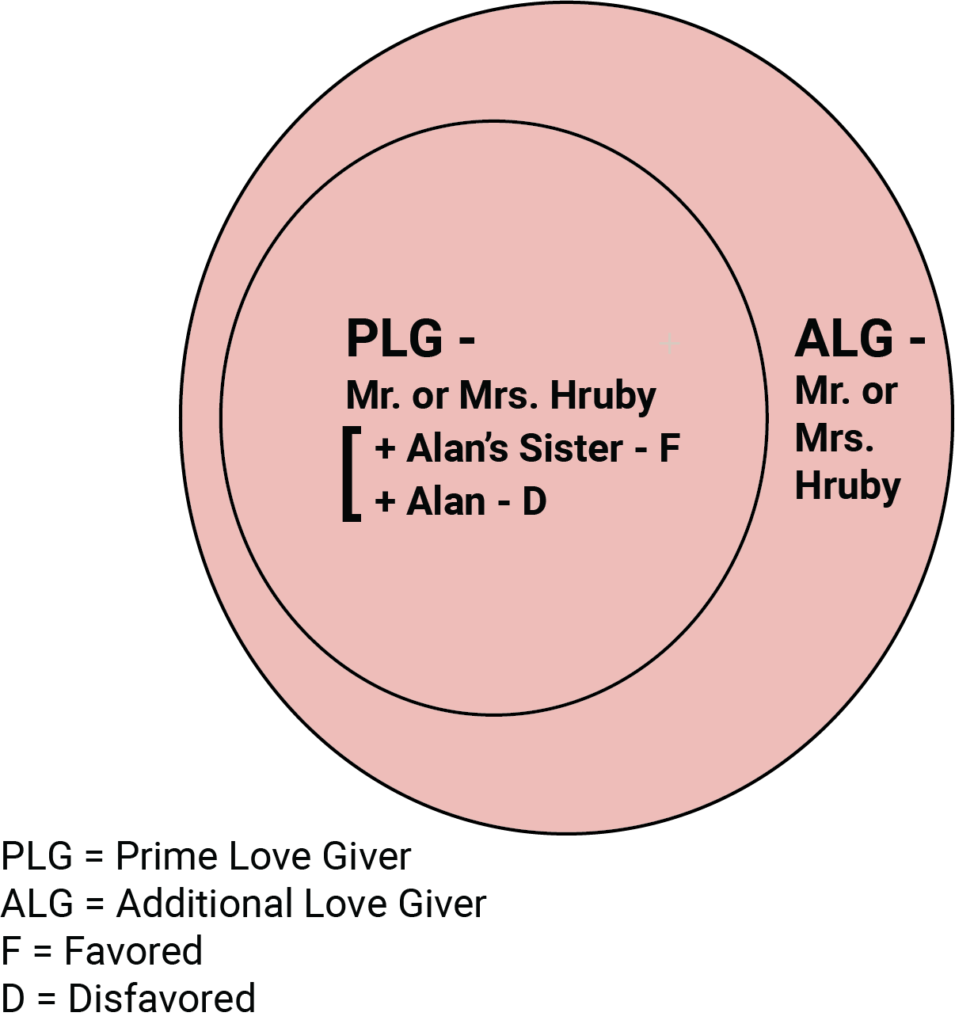The family tragedy of Alan Hruby is a clear case of Favoritism. It happened in 2014, and as a major crime, was reported and reviewed by many television stations. During his high school and college years 19-year-old Alan Hruby, who came from a well-to-do, established family in his community, was spending money very liberally, living the high life and regularly splurging on brand name watches, clothing, jewelry, travel, cars and more. When his parents ran out of money for him, he turned to defrauding his mentally compromised grandmother. When this too was refused, he decided the best way to feed his money hunger was to kill his parents and get his inheritance. He reasoned that if he killed his sister too, he would be entitled to the entire estate.
So Alan came home from college one day and sat in waiting with a shotgun. When his mother and sister came through the door he killed them, and then sat amid the blood and debris to wait for his father, whom he executed as well. He must have thought it was a brilliant, airtight plan at the time. But if we look carefully at his behavior we have to ask ourselves: Could there really have been any plan at all? Was there any intellectual power at play here?
According to those who observed and questioned Alan immediately afterwards, he showed not a shred of remorse for his actions, although he readily confessed upon deeper investigation. Later it is said that he seemed remorseful when he finally came to realize that he had accomplished nothing. Now he had no family to fall back on, but would be spending the rest of his natural life in prison and had ruined his own prospects for a future.
The Hruby family is a perfect 4-person scenario for DOLF. We need not waste time examining the details of the crime, wondering, or asking Alan WHY he took the action he did. Especially in a case where the criminal is a young person such as Alan, and the crime is perpetrated inside the family circle against other family members, we can guess that the reason lies in the social-Emotional dynamics of the family members themselves. So in DOLF we first look at the sibling. In Alan’s case, we find that his sister was a star athlete who excelled in everything she did. From this we can surmise that in her parents’ eyes, she was their star, their beloved child, and that they were eminently proud of her. We don’t know who the Prime Love Giving parent was in the Hruby family, but can proceed without knowing this. Given the information we have, it would not be far-fetched to assume that Alan was Disfavored in comparison with his sister, whose impeccable performances made her the Favored one of the two.

Like other Disfavored people, especially teenagers, Alan resorted to searching outside his family for social recognition. In that search for social acclaim and popularity, Alan behaved as many Disfavored people typically do. He. turned to his peer group for validation and to find the substitute “family” from whom he hoped he would be able to gain the approval he sought to soothe his aching soul. He tried to impress his friends and girlfriends with expensive gifts and showy lifestyle assets, taking out his wallet whenever he felt he needed or wanted to. It would not be untoward to assume his behavior became a very bad habit and even label it as an addiction. He never seemed to get enough, be satiated, or be surrounded by all these “goodies”!
*********Next: The Case of Alan Hruby – Part 2, The Significance of MONEY in Disfavor
************************************
